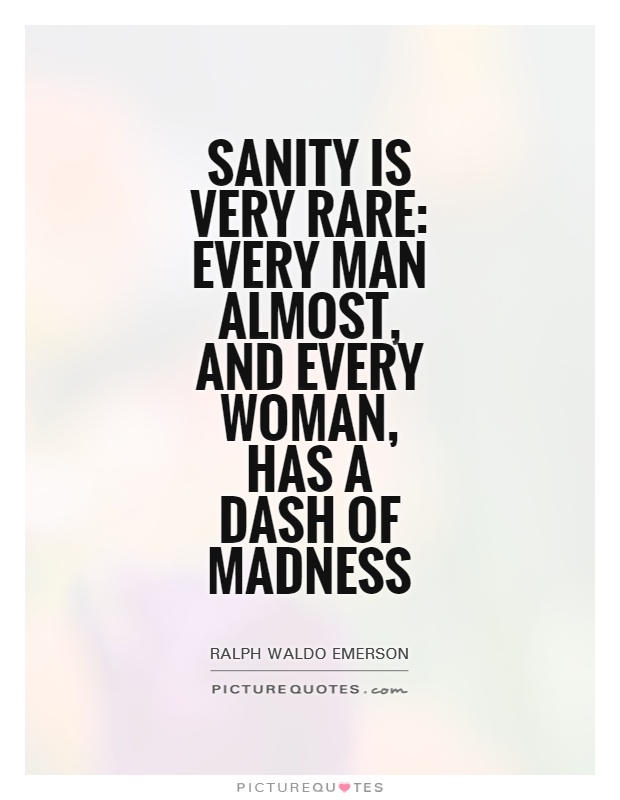Sanity is very rare: every man almost, and every woman, has a dash of madness

Insanity QuotesMadness QuotesEvery Woman QuotesSanity QuotesEvery Man QuotesRalph Waldo Emerson Quotes
Sanity is very rare: every man almost, and every woman, has a dash of madness
Ralph Waldo Emerson, a prominent American essayist, lecturer, and poet, was known for his transcendentalist philosophy and his belief in the inherent goodness of individuals. In his essay "Self-Reliance," Emerson explores the idea that sanity is a rare quality, with most people possessing a touch of madness. This notion challenges the conventional understanding of sanity and madness, suggesting that perhaps it is the so-called "mad" individuals who are truly in touch with their inner selves and their own unique perspectives on the world.Emerson's assertion that every man and woman has a dash of madness speaks to the complexity of human nature. He believed that conformity and societal expectations often suppress the individual's true self, leading to a sense of alienation and disconnection from one's own thoughts and feelings. In this sense, madness can be seen as a form of rebellion against the constraints of society, a refusal to conform to the norms and expectations that limit one's potential for self-expression and personal growth.
Emerson's transcendentalist philosophy emphasizes the importance of self-reliance and individualism, encouraging individuals to trust their own instincts and intuition rather than conforming to external authorities. In this context, madness can be seen as a form of creative expression, a rejection of the status quo in favor of a more authentic and meaningful way of living. By embracing their own unique perspectives and experiences, individuals can tap into their inner creativity and wisdom, transcending the limitations of conventional thinking and societal norms.
Emerson's belief in the inherent goodness of individuals suggests that madness is not necessarily a negative quality, but rather a reflection of the complexity and diversity of human nature. By acknowledging and embracing the "dash of madness" within themselves, individuals can cultivate a deeper sense of self-awareness and authenticity, leading to a more fulfilling and meaningful life. In this sense, sanity and madness are not mutually exclusive, but rather complementary aspects of the human experience that can enrich and enliven our understanding of ourselves and the world around us.












 Friendship Quotes
Friendship Quotes Love Quotes
Love Quotes Life Quotes
Life Quotes Funny Quotes
Funny Quotes Motivational Quotes
Motivational Quotes Inspirational Quotes
Inspirational Quotes